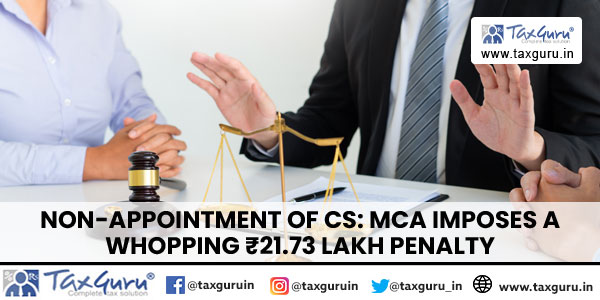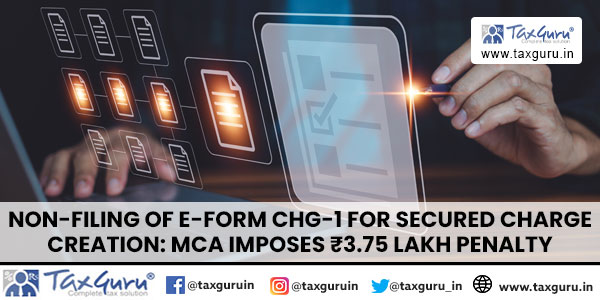Case Law Details
CA Sandeep Kanoi
It is not disputed that tax was deducted at source by the tenant Union Motors Services Limited and they have issued some Certificates which has been given credit to by the Department. The present dispute relates to the failure of non issuance of TDS certificates by the tenant. The mandate is on the tenant to deduct tax at source and remit the amount to the Government and also issue certificate to the assessee.
Sec.205 of the Income Tax Act reads as follows:
“205. Bar against direct demand on assessee._ Where tax is deductible at the source under sections 192 to 194, section 194A, section 194B, section 194BB, section 194C, section 194D, section 194E, section 195 and section 196A, the assessee shall not be called upon to pay the tax himself to the extent to which tax has been deducted from that income”.
The plain reading of the section makes it clear that whenever tax is deductible under the provisions of this Act and where the tax has already been deducted, no demand can be raised on the deductee. This implies that to the extent of TDS, demand cannot be raised on the deductee. However, for the failure on the part of the deductor, suitable provisions are available in section 201 and other sections mentioned supra.
This has been dealt with by the Bombay High Court in the case of (Yashpal Sahni vs Asst. CIT (Bom.) reported in (2007) 293 ITR 539 (Bom) and held as follows :-
“20. From the language of section 205, it is clear that once the tax is deducted at source, the same cannot be levied once again on the assessee who has suffered the deduction. Once it is established that the tax has been deducted from the salary of the employee, the bar under section 205 of the Act comes into operation and it is immaterial as to whether the tax deducted at source has been paid to the Central Government or not, because elaborate provisions are made under the Act for recovery of tax deducted at source from the person who has deducted such tax.”
Following this judgment, a learned Single Judge of Karnataka High Court in the case of (Smt. Ansuya Alva vs Deputy Commissioner of Income Tax) reported in (2005) 278 ITR 206 , interpreting sec.205, has held as follows:
“9. I am of the view that this understanding and such interpretation of Section 205 of the Act is also in consonance with the general principles of law, particularly the principles of the Law of Principal and Agent. If we look at the scheme for the provision of deduction of tax at source, it becomes obvious that such person is acting on behalf of the Revenue, i.e.,as an agent of the Revenue. In fact, the person is enabled statutorily to make deduction and remit the amount to the Central Government, though in the instant case, the person who has deducted the amount may be the tenant or lessee of the petitioner and there is such inter se relationship as between the two, insofar as the deduction of tax at source representing 20 per cent of the monthly rent payable as envisaged under Section 194-I of the Act is concerned, the deduction is under the statutory obligation and on behalf of the Rvenue and because of the compulsion herein. It is not as if the petitioner could prevent such deduction. When the person like a tenant acts as a representative or agent of the Revenue for such deduction and if there is any violation on his/her part, the consequence should fall only on the Revenue and that cannot be foisted on the assessee. It is no doubt true that the assessee if pays the tax in terms of the tax liability, i.e., under the assessment order and to the extent of the amount is not paid to the Government remains a liability on the assessee also and could look upto the tenant to recover the amount for reimbursement. The question in the light of the provisions is that, should the assessee be driven to that plight? I thank that the provision is to provide a protection to the assessee and to prevent the Revenue from embarking on the recovery proceedings in respect of such amount. If such being the object of the provision, it is not possible to understand the word ‘deduct’ occurring in Section 205 as ‘deducted and remitted’.
10. Even on the general principles of law, the Law of Principal and Agent, as discussed above, for a default of the agent of the Revenue, the petitioner-assessee, who is a third party in relation to such relationship cannot be penalised. In the circumstances, I am of the view that the Revenue is to be definitely restrained in terms of Section 205 of the Act from enforcing any demand on the assessee-petitioner insofar as the demand with reference to the amount of tax which had been deducted by the tenant of the assessee in the present case, and assuming that the tenant had not remitted the amount to the Central Government. The only course open to the Revenue is to recover the amount from the very person who has deducted and not from the petitioner.”
The facts and circumstances of the above case is similar to the facts of the present case. Therefore, we have no hesitation to hold that the bar under Sec.205 of the Income Tax Act prevents the department from demanding the tax deducted at source from the assesee who has suffered a deduction. Further more, now the liability rests with the Official Liquidator. Therefore, the Department is at liberty to proceed against the company in liquidation in the hands of the Official liquidator by filing a claim for the amount in question.




























Unfortunately assessing officers are not following sec 205 of incometax act.I am being asked to pay income tax despite the fact that form 26AS, TDS certificate are showing that tax has been deducted by the deductor.
While on the subject of grant of credit for TDS under the Income-tax Act I would invite discussion on grant of input credit for taxes paid on purchases under the MVAT Act.
Taking recourse to section 48(5) the Sales Tax Authorities in Maharashtra deny credit for taxes paid by them on genuine purchases made by them on grounds that the purchaser has not filed returns or paid taxes. Input credit claimed is denied to them. The purchaser is forced to prove that his seller has filed the return and paid the tax. If it is not so proved, the purchaser is again made to pay the tax to the department. This is wholly unjust, unfair and against principles of natural justice.
How can a purchaser prove that the tax collected by a seller is paid by him to the Government department.
The department in such cases should, at the request of the buyer, issue summons to the seller and allow him to cross examine him before the authorities.
There should be some solution to this legal or political.